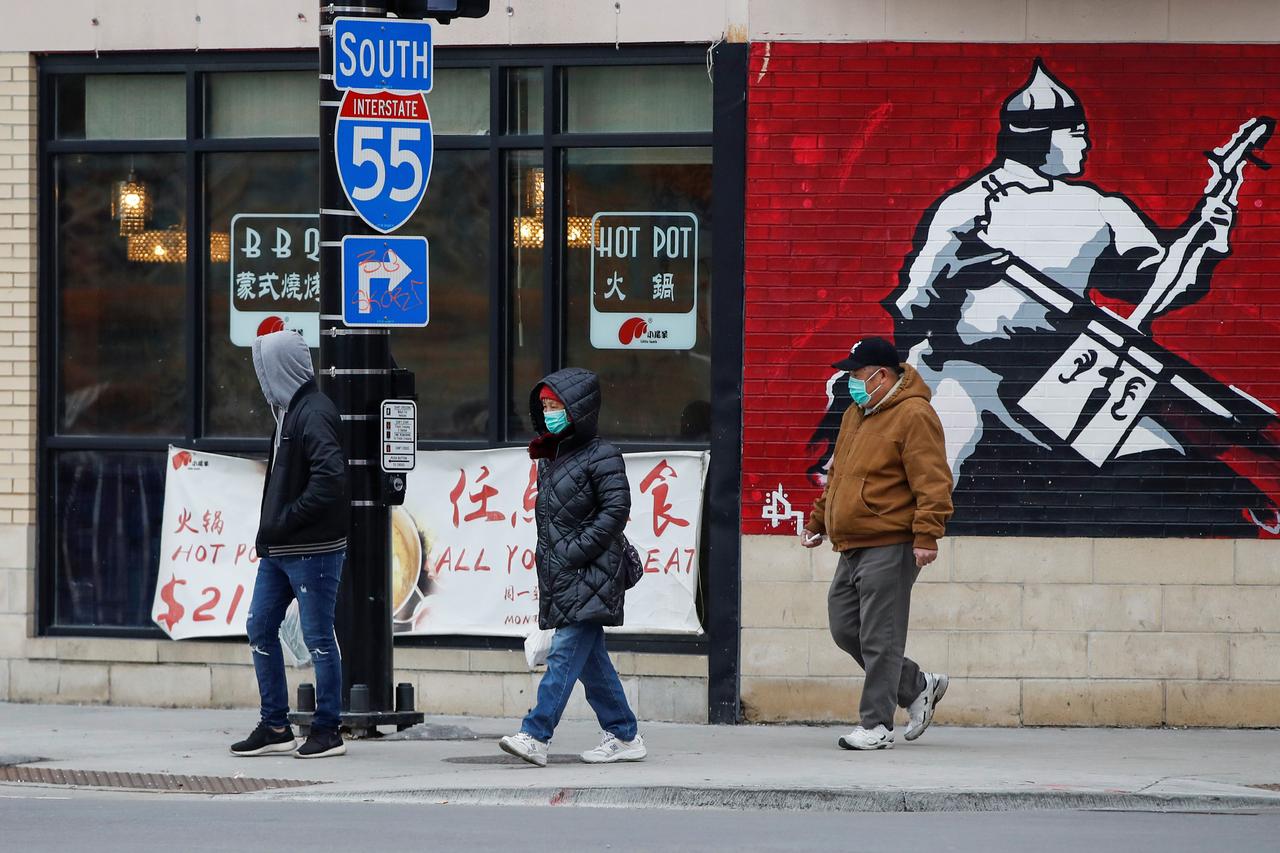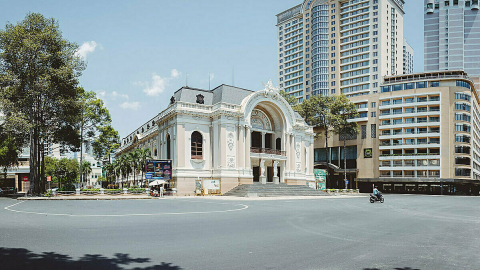Vietnam Airlines offers free tickets to healthcare workers.
From April 9th to April 30th, 2020, Vietnam Airlines will provide free air tickets to passengers who are doctors, nurses, and medical professionals participating in epidemic prevention and control, and will also provide free transportation of goods serving the treatment and prevention of the epidemic on the airline's regular domestic routes.
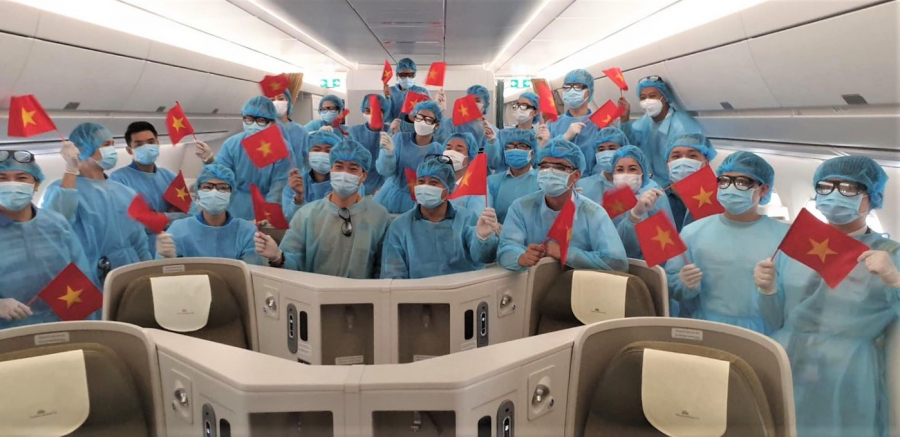
Vietnam Airlines, the national airline, is launching the program "Standing alongside the country to overcome Covid-19".
To provide timely support for the travel of medical personnel and the transportation of goods for epidemic prevention and control, the airline will also prioritize seat confirmation and airport procedures for passengers and goods under this program to ensure flights are carried out as planned.
Vietnam donates 550,000 face masks to Europe.
On the afternoon of April 7th, Deputy Minister of Foreign Affairs To Anh Dung symbolically handed over 550,000 antibacterial, droplet-resistant fabric face masks manufactured in Vietnam to France, Germany, Italy, Spain, and the United Kingdom – countries heavily affected by Covid-19, according to a statement from the Ministry of Foreign Affairs.
According to Deputy Minister Dung, in the current global health crisis, no single country can effectively cope with the spread of the disease alone. International cooperation and strengthened solidarity are crucial factors in protecting the health and safety of the people, contributing to minimizing the enormous impacts caused by Covid-19.
Japan declares a state of emergency.
On April 7, Japanese Prime Minister Shinzo Abe declared a state of emergency in Tokyo and six other areas to prevent the spread of the disease.
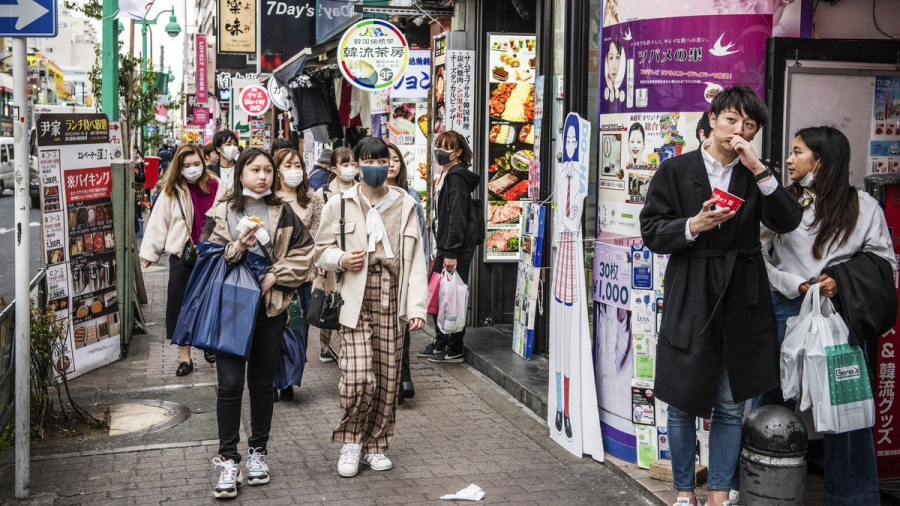
The state of emergency will affect the lives of approximately 44% of Japan's population for about one month.
The Japanese government has approved an emergency economic package worth 108.2 trillion yen (993 billion USD), equivalent to 20% of Japan's economic output, to deal with the Covid-19 pandemic. In this support package, the Japanese government declared the Covid-19 pandemic to be the "greatest crisis" the world economy has faced since World War II.
China officially lifts lockdown in Wuhan.
From midnight on April 8th local time, Wuhan city (Hubei province), once the epicenter of the Covid-19 outbreak in China, officially lifted its lockdown after 77 days.
The entire airport, railway, waterway, highway, and bus system in Wuhan has resumed operations. However, residents are still advised to avoid leaving their neighborhoods, as well as the city of Wuhan and Hubei province, unless absolutely necessary.
According to AFP, immediately after the lockdown was lifted, thousands of people flocked to train stations and highways to leave Wuhan. Authorities had previously estimated that around 55,000 people would leave Wuhan after the lockdown was lifted.
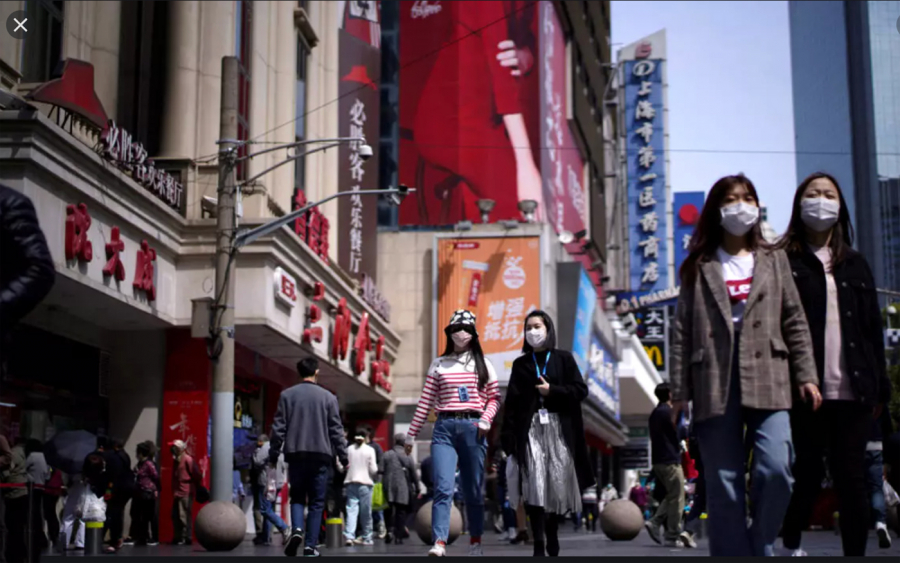
City officials are still urging residents to be cautious, warning that the absence of new cases does not mean there is no risk.
South Korea suspends visa-free entry.
According to Yonhap, South Korean Prime Minister Chung Sye-kyun announced on April 8 that South Korea will temporarily suspend visa-free programs for countries that imposed entry bans on South Koreans during the Covid-19 pandemic. This move comes as South Korea seeks to contain "imported" cases, which are believed to account for a large proportion of new infections in the country.
Mr. Chung also stated that the government will extend the entry restrictions for foreigners traveling without essential and urgent purposes.
Singapore bans gatherings in both public and private places.
The new law passed by the Singapore Parliament on April 7 will prohibit all social gatherings, large and small, not only in public places but also in private spaces such as homes.
This law is in effect for six months. The penalties for violators are severe, including a S$10,000 fine and/or six months imprisonment for the first offense, and doubling for repeat offenders.
In addition, the law empowers the government to requisition land and essential services to strengthen healthcare and allows the Ministry of Health to close facilities to combat epidemics.
Thailand continues to keep schools closed until July.
The Thai cabinet has approved a proposal from the Ministry of Education to close schools until early July 2020. According to the Bangkok Post, the semester, which began on May 16, will be postponed until July 1. The Ministry of Education will adjust teaching methods to align with the curriculum for all levels in the 2020 school year.
Dubai extends trade restrictions.
Dubai has extended the closure of commercial activities until April 18 to prevent the spread of the virus, according to the Dubai Ministry of Economic Affairs.
During this period, previously exempted sectors are still allowed to operate normally. The new restrictions came into effect at 8 PM local time on April 4th.
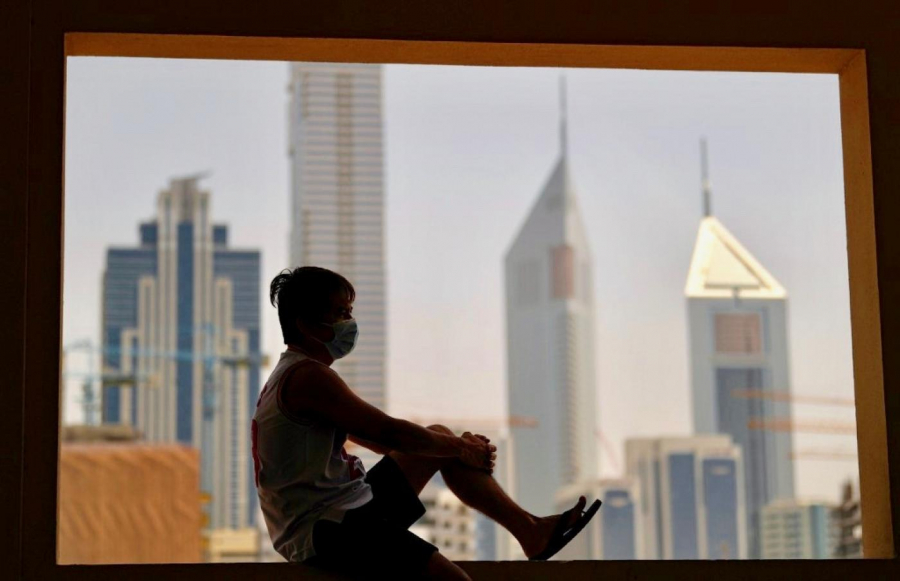
As of April 7th, the UAE had a total of 2,076 confirmed cases and 11 deaths.
North Korea deploys SARS-CoV-2 virus testing.
According to Reuters, on April 7, the World Health Organization (WHO) said that North Korea – one of the few countries that has not reported any Covid-19 cases – stated that it is conducting tests for the SARS-CoV-2 virus and that more than 500 people are in quarantine.
Previously, North Korea received equipment for use in PCR diagnostic testing from China in January. According to the WHO, North Korea now has the capability to test for the virus at its national standard laboratory in the capital, Pyongyang.
Cuba is allowing its citizens to use the drug PrevengHo-Vir to prevent the disease.
The Cuban Ministry of Health announced on April 7 that the country will begin using the microdose drug PrevengHo-Vir on healthy individuals as a preventative measure against Covid-19, according to the Miami Herald.
According to Dr. Francisco Duran, Director of National Epidemiology at the Cuban Ministry of Health, this preventative medicine is a homeopathic product that helps prevent several different diseases such as influenza, dengue fever, and infectious diseases spread by viruses like Covid-19.
The US CDC has removed guidance on using malaria drugs to treat COVID-19.
The U.S. Centers for Disease Control and Prevention (CDC) has removed a guide for doctors on how to prescribe hydroxychloroquine and chloroquine, recommended by President Donald Trump for the treatment of Covid-19, from its website.
Reuters reported that this move by the CDC came three days after the CDC released information on dosages for the two antimalarial drugs, based on the experience of various countries in treating Covid-19 rather than scientific evidence.
Reuters also reported that the CDC issued initial guidance on the use of hydroxychloroquine and chloroquine after President Trump pressured health officials and federal health agencies to use the two drugs to treat the coronavirus. The CDC has not yet responded to Reuters' inquiry about the removal of that initial guidance.
Italy and the US are testing blood for people with antibodies to SARS-CoV-2.
On April 6th, officials in the Veneto region of northeastern Italy, also the epicenter of the Covid-19 outbreak in the country, began testing the blood of healthcare workers, with an expected 2,000-3,000 people. Once this process is complete, testing will be expanded to include staff and residents in nursing homes and public workers.
Veneto Governor Luca Zaia said the goal of the campaign is to find individuals who are "immune" to the SARS-CoV-2 virus, and then grant them permission to return to work.
This move comes as the number of Covid-19 deaths and cases in Italy has shown signs of "stabilizing," and the government is beginning to consider phase 2 of the health crisis, when businesses and industries that were closed due to lockdown orders can reopen.
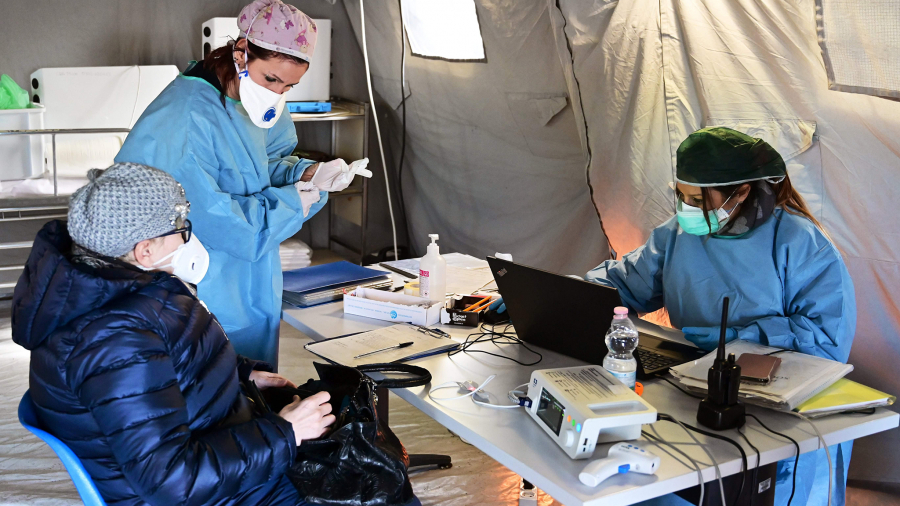
Besides Italy, the US has also begun a blood testing campaign to identify people who have developed immunity to the SARS-CoV-2 virus.
Death tolls in the US and UK hit record highs.
Statistics from Johns Hopkins University on April 7th showed that the US had at least 387,547 confirmed cases of coronavirus and 12,722 deaths from the virus.
At least 19,351 new infections and 1,939 additional deaths were confirmed on April 7th. The number of new deaths recorded was the highest single-day death toll since the outbreak began in the United States.
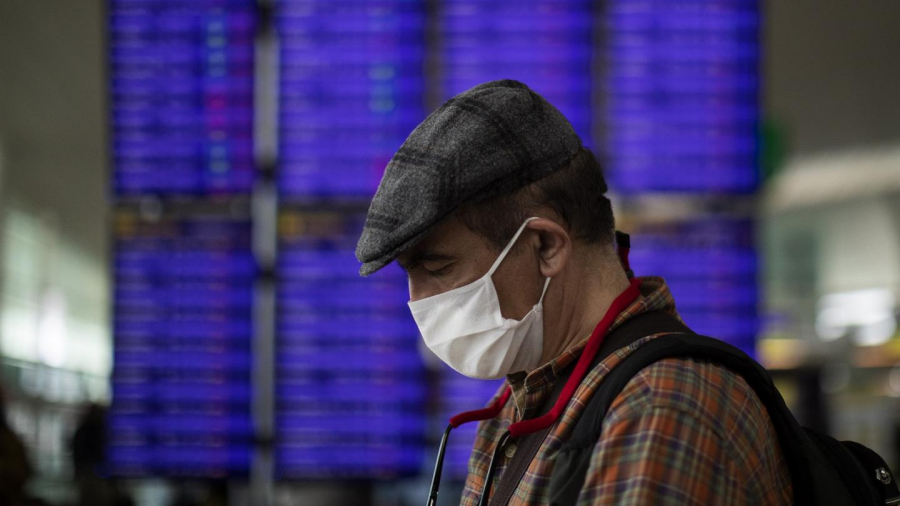
In the UK, the Department of Health recorded a record number of deaths from the coronavirus in 24 hours with 786 cases. To date, the total number of deaths from the coronavirus in the UK has reached 6,159, and the total number of infections is 55,242.
These new figures come as British Prime Minister Boris Johnson battles the coronavirus in the intensive care unit (ICU) of a London hospital. While Johnson is undergoing treatment, British Foreign Secretary Dominic Raab will decide whether or not to lift the nationwide lockdown.
In related developments, British Home Secretary Michael Gove has self-isolated after a family member showed symptoms of Covid-19. Mr. Gove is one of the most senior members of Prime Minister Boris Johnson's cabinet who remains active.
The death toll in France has surpassed 10,000.
As of the evening of April 7th (local time), France had recorded 10,328 deaths, including 7,091 deaths in hospitals (an increase of 607 in 24 hours) and 3,237 deaths in nursing homes (an increase of 802). In the past 24 hours, France recorded an additional 1,417 deaths due to Covid-19.
Thus, France has become the fourth country in the world to have more than 10,000 deaths, after Italy, Spain, and the United States.
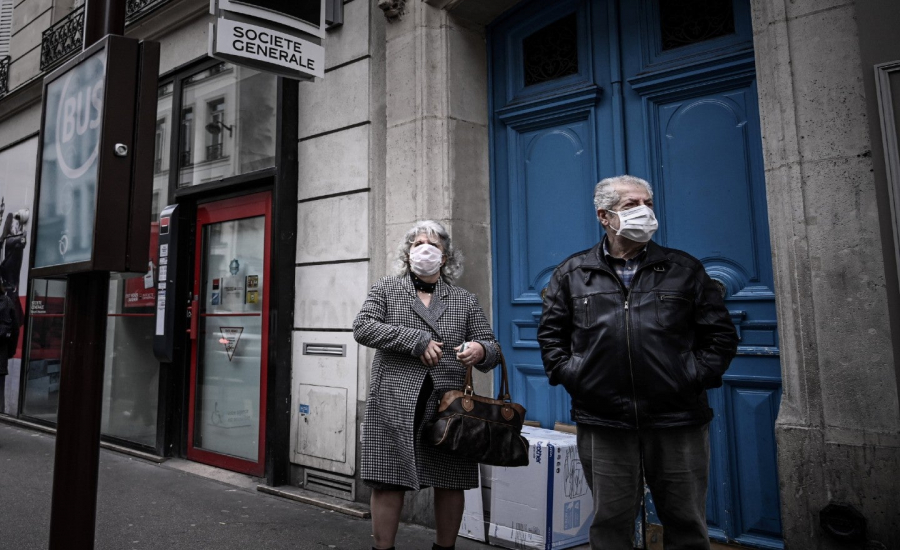
French health officials say 82% of the deaths were among people over 70 years old.
On the same day, Russia recorded its first-ever increase in new infections exceeding 1,000 cases in a single day. With 1,154 new cases, the total number of infections reached 7,497, while the number of deaths rose by 11 to 58.
Some Nordic countries have begun to ease pandemic restrictions.
Several Nordic countries have announced they will begin easing some of the restrictions imposed to combat the spread of the disease, after recording low infection rates.
Accordingly, the Danish government plans to reopen nurseries and primary schools from April 15th, as the first step in gradually easing the three-week lockdown.
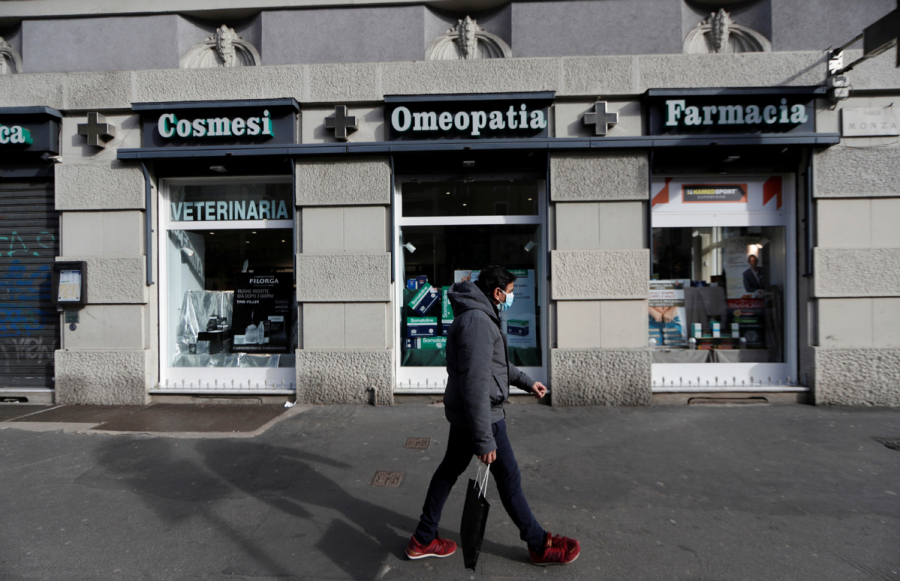
Denmark was one of the first European countries to announce the closure of schools, shops, and other businesses, as well as the closure of its borders to all foreigners.
On April 7th, Norwegian Prime Minister Erna Solberg also announced a phased plan and schedule for reopening nurseries and schools in April. Accordingly, nurseries will reopen from April 20th to 27th. However, Norwegians will still have to continue working from home and maintain disinfection measures "for an extended period".
In contrast, in Sweden, the government plans to introduce a bill that would increase its emergency powers, such as closing transport hubs and restaurants, to curb the spread of Covid-19.
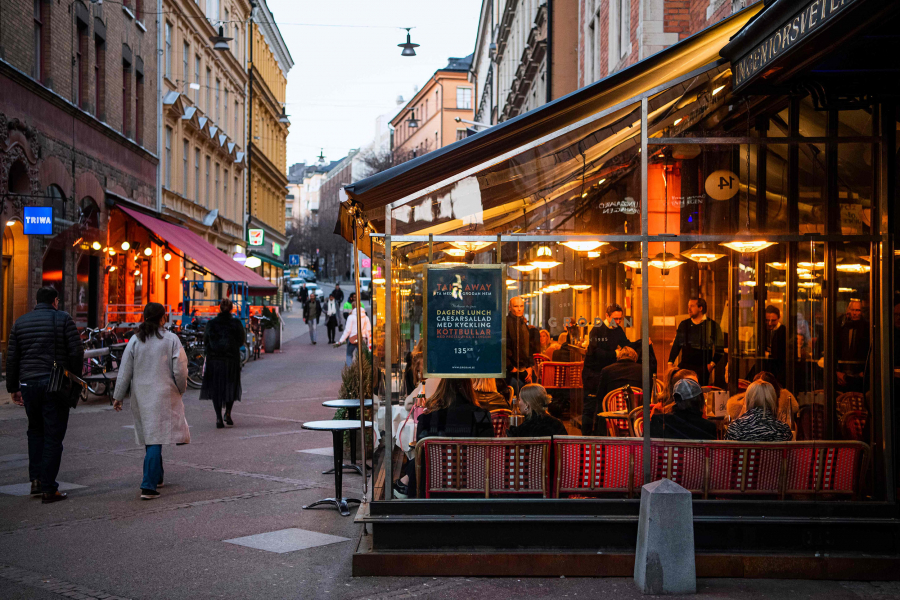
Sweden's pandemic response measures differ from most European countries, relying primarily on voluntary participation and public awareness.
The EU has proposed providing 15 billion euros to help poorer countries combat COVID-19.
The European Union (EU) on April 7 proposed 15 billion euros (16.4 billion USD) to help poor countries around the world combat the Covid-19 pandemic, which is impacting every aspect of life.
European Commission President Ursula von der Leyen said the money would help countries with poor healthcare systems to mitigate some of the impacts of the pandemic and support long-term economic recovery.

 VI
VI EN
EN



